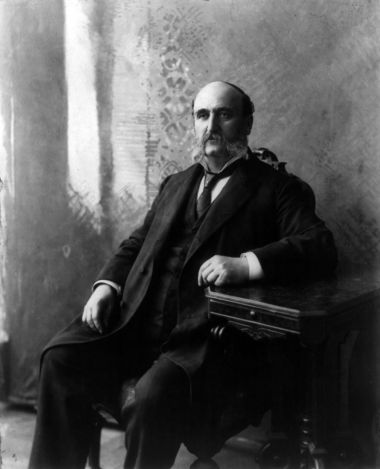Sacred Songs: How Ira D Sankey's music spoke of the love of God
On this day in 1840 one of the most influential singer-songwriters in evangelical history was born.
Ira D Sankey was the musical partner of famed Bible teach and evangelical Dwight L Moody. Moody's evangelistic meetings reached hundreds of thousands of people as he travelled the globe – and it was Sankey's songs they sang.
Known as the 'Sweet singer of Methodism', Sankey was converted at the age of 16 at the King's Chapel near his home in Edinburg, Pennsylvania. He fought in the US Civil War before working for the Internal Revenue Service. He met Moody in 1870 and they began working together shortly afterwards.

They made several visits to the UK at the instigation of CH Spurgeon, who was a supporter of their work. When Moody was asked about Sankey's contribution to his campaigns, he replied: 'If we can only get people to have the words of the love of God coming from their mouths it's well on its way to residing in their hearts.'
The Moody/Sankey pattern was followed by other evangelists right up to Billy Graham, who used Cliff Barrows in the same way. Sankey's songs were simple and direct, appealing to the heart and leading to a decision. They spoke of the love and grace of God and the sacrifice of Christ, and their tunes were catchy and singable. Sacred Songs and Solos was widely used in evangelical churches on both sides of the Atlantic.
Sankey himself was a composer rather than an author, though he did write as well. He set to music hymns by famous writers including Horatius Bonar and Fanny J Crosby, whose close friend he became.
Perhaps Sankey's most famous composition was The Ninety and Nine, which uses Jesus' story of the Lost Sheep to speak of Christ seeking for the lost soul; the words are by Elizabeth Clephane. It begins:
There were ninety and nine that safely lay
In the shelter of the fold;
But one was out on the hills away,
Far off from the gates of gold.
Away on the mountains wild and bare;
Away from the tender Shepherd's care.
It pictures the trials of the search, depicting the wounds of rocks and thorns as the wounds of the cross, and concludes with joy in heaven:
And the angels echoed around the throne,
'Rejoice, for the Lord brings back his own!'
Ira Sankey married one of his choir members, Fanny Victoria Edwards, and they had two sons. He became blind from glaucoma during the last five years of his life and died on August 13, 1908.











